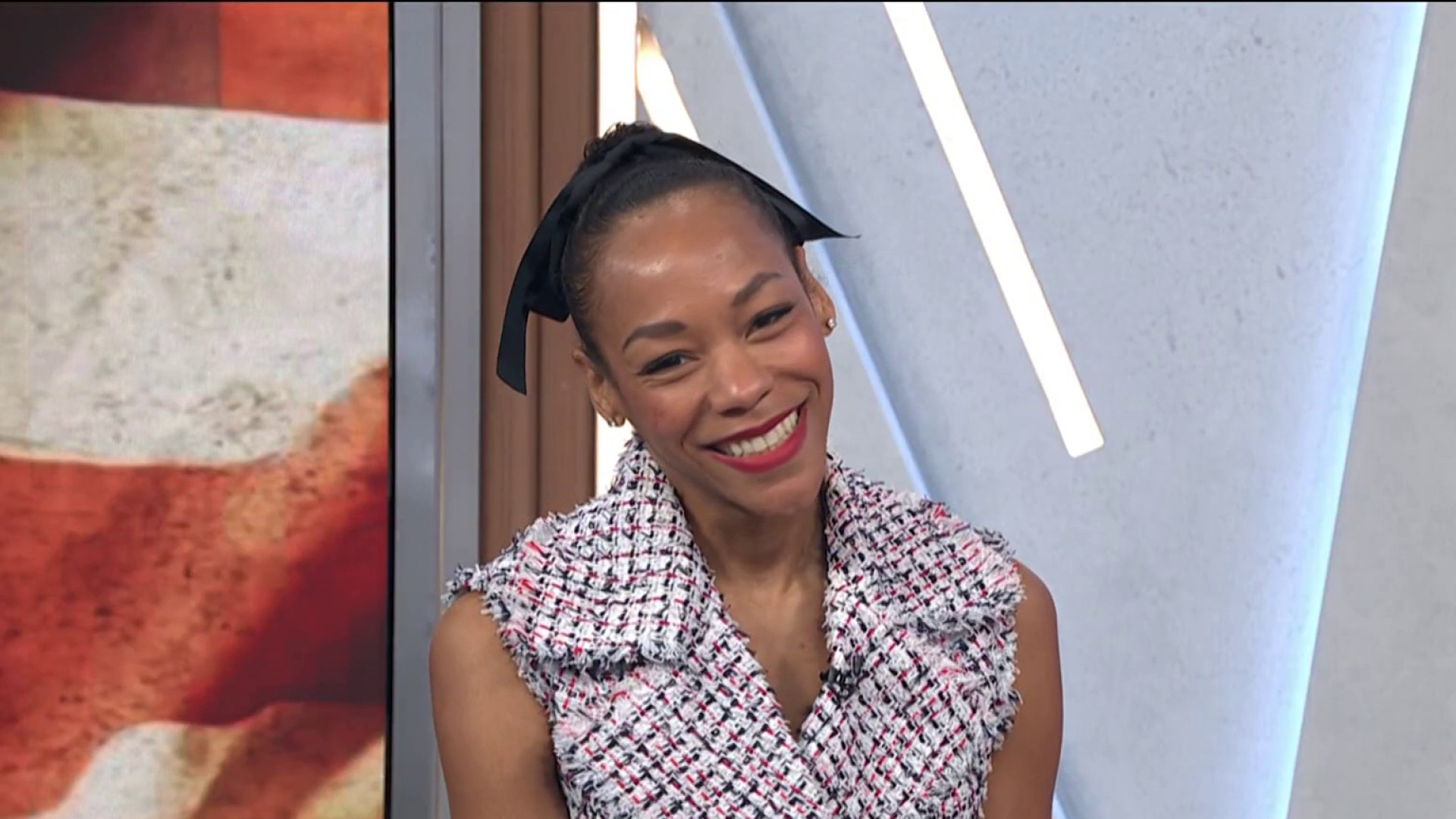Singer Josh Groban makes his Broadway debut in “Natasha, Pierre & The Great Comet of 1812,” a sung-through musical based on an excerpt of “War and Peace.” It’s an interesting choice for the multi-Platinum recording star, because he’s very much part of the ensemble, not its leading man.
“The Great Comet” also will be lauded for its innovative and transformative approach to storytelling: The Imperial has been remodeled so that audiences are nearly experiencing theater in the round, often with actors practically in their laps.
Action may take place in an orchestral nucleus, where Groban can sometimes be found tickling the ivories. Other times, he and his richly-attired castmates roam the curved runways that peel off from that core, inserting cabaret-style chairs smack between two paying guests for a discussion.
Also, there are pierogis.
Provided by the nearby Russian Samovar restaurant and packaged in tiny takeout boxes, the doughy delicacies are tossed into the audience during a wonderful prologue. Later, egg-shaped shakers are distributed to guests, who are expected to provide accompaniment to some of composer Dave Malloy’s Eastern European-sounding melodies.
But let’s go back to that prologue for a moment. It’s effective, and important you listen, or you may be quickly lost. It explains who the main characters are, and directs us to read the synopsis in our Playbill, and to examine the “Family Tree” published on the adjacent side.
In this interpretation of a 70-page excerpt of Tolstoy’s work, we meet wide-eyed Natasha (Denée Benton, of Lifetime’s “UnREAL”), who is tightly wound, in a Juliet-ish kind of way. Natasha is engaged to marry a man we never get to know much about, because she becomes taken with Anatole (Lucas Steele), a roguish playboy.
Broadway
Also here is slothful Pierre (Groban), a sad man married to the scheming Hélène (Amber Gray, as magnetic as she was in NYTW’s “Hadestown”), who is Anatole’s sister. Myriad talented actors warrant mention, but for space purposes, I’ll just give a shoutout out to the comet of the title, which makes a dazzling appearance in the final song.
Benton, as the ingenue, nicely captures the wide-eyed optimism of youth. (The role was originally played during an off-Broadway run by Philippa Soo, whose subsequent gig was as the title-character’s wife in “Hamilton”).
As noted: This isn’t a Josh Groban concert. He sings some -- notably in the first-act aria “Dust and Ashes” -- and plays piano and accordion. When he is singing, that voice carries through the theater with operatic power and clarity.
Steele is charismatic as the cocky hedonist, haughtily tearing through scenes like a Disney prince off his meds.

“The Great Comet” isn’t a show during which you can close your eyes, because you’ll miss something, be it a kaleidoscopic flash of Paloma Young’s costumes, or an elaborate dancing celebration that would fit right in during Motel and Tzeitel’s post-wedding fete in “Fiddler on the Roof.”
Malloy’s original score is heavily influenced by Russian folk and classical music, and then underlined with powerful electro-pop. It manages to feel relevant to the Moscow setting, though at times I’ll admit to finding some of it inaccessible.
The director is multiple Obie-winner Rachel Chavkin, who also helmed “Hadestown.”
“The Great Comet” team has managed something unusual for Broadway, an intimate and affecting musical that can’t really be said to have populist appeal. I imagine you’d experience it differently depending on your seat, and possibly every time you might attend. Bravo.
“The Great Comet,” with an open-ended run at the Imperial Theatre, 249 W. 45th St. Ticket: $59-$169. teelcharge.com, or call 212-239-6200.
Follow Robert Kahn on Twitter@RobertKahn



